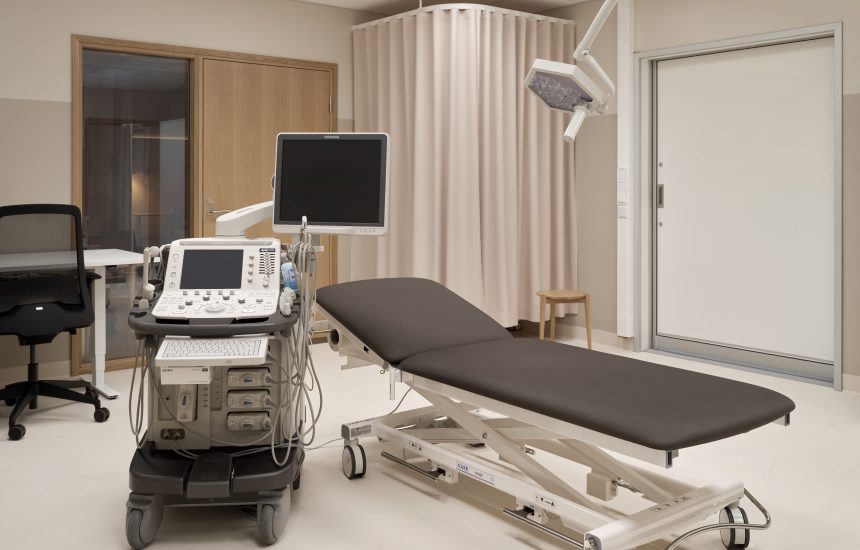Docrates launches gastrointestinal endoscopy services
11.1.2024 Categories: Press releases
In early 2024, Docrates Cancer Center is strengthening its service package for early cancer detection and diagnostics by launching endoscopy services of the oesophagus, stomach and colon at its own premises.
Endoscopic examinations are an essential part of the investigation of gastrointestinal symptoms, as well as the diagnosis and treatment of intestinal diseases. Typical situations where endoscopic examinations are needed include, for example, suspicion of inflammatory bowel disease, coeliac disease, Helicobacter pylori infection or tumor.
The endoscopy services will begin in Docrates’ new treatment facilities in January. In connection with endoscopies, Docrates also provides sampling and other minor procedures, such as the removal of polyps and the treatment of haemorrhoids.
Endoscopies can help detect intestinal and abdominal cancers at an early stage
Colorectal cancer is the third most common cancer in Finland, and its level of incidence is increasing. Western lifestyles increase the risk of colorectal cancer. Close relatives of a person with colorectal cancer and people with inflammatory bowel diseases have an elevated risk of developing colorectal cancer compared to the rest of the population. If the symptoms of colorectal cancer are nonexistent or vague, the patient’s access to testing, diagnosis and treatment may be delayed. Unfortunately, colorectal cancer is often found after it has reached an advanced stage, making the prognosis worse.
– Symptoms of colorectal cancer may include changes in bowel functions or blood in the stool. If you experience any unusual stomach symptoms, it is always important to examine the cause, says Heli Littunen, Director of Services at Docrates Cancer Center.
Colonoscopy, in other words endoscopy of the colon or the rectum, is the best way to detect colorectal cancer in its early stages. Gastroscopy, on the other hand, is an important method when the doctor suspects a disease in the oesophagus, stomach or the first part of the small intestine.
– Intestinal endoscopy can significantly reduce the risk of colorectal cancer. 50 is a good age to consider a colonoscopy. Because colorectal cancer is slow to develop, just one colonoscopy can offer long-term protection. The earlier colorectal cancer is detected, the easier it is to treat and the more curable it is, says Littunen.
Increased demand for endoscopy
Colorectal cancer has a poor reputation as it is difficult to cure in its advanced stages. In recent years, national screening for colorectal cancers has been launched in Finland, enabling the detection of cancers even earlier.
– National colorectal cancer screenings appear to have increased the demand for endoscopic examinations. We want to respond to this demand by offering our customers quick access to examinations. If signs of cancer are detected in an endoscopy, our patients always have the opportunity for an appointment with a Docrates oncologist and gastrointestinal surgeon without delay. We are pleased to be able to strengthen our service selection and our entire treatment path of GI tract cancers, says Littunen.
– We have the latest AI-supported equipment and experienced personnel. As these types of examinations can make patients nervous or anxious, we aim to perform them as comfortably and efficiently as possible. Our new treatment facilities in the hospital extension also allow for a peaceful recovery after the endoscopy. Although you can schedule an endoscopic examination without a doctor’s referral, we usually recommend that you first have a doctor’s appointment to assess whether an endoscopic examination is necessary, says Littunen.
Examples of symptoms that may be examined with an endoscopy:
- Recurrent or persistent heartburn
- Unexplained chest pain
- Difficulty swallowing
- Anaemia
- Unexplained weight loss and abdominal pain
- Changes in bowel functions, chronic diarrhea, blood in stool or rectal bleeding
For more information, please contact:
Heli Littunen, Director of Services, Docrates Cancer Center
tel. +358 (0)50 500 1886, heli.littunen@docrates.com
Are you referring a patient to us or would you like to know more about patient referral?
Appointment booking, Docrates Cancer Center
tel. +358 (0)10 773 2000, MON–THU 8 a.m.–6 p.m., FRI 8 a.m.–4 p.m.












